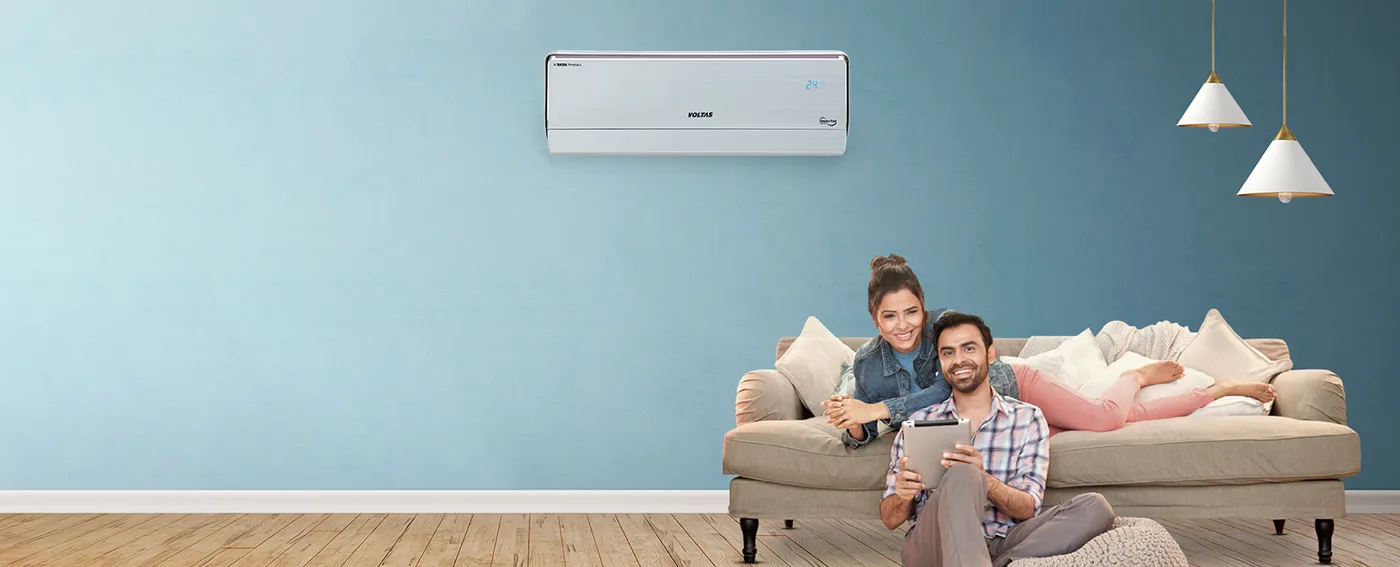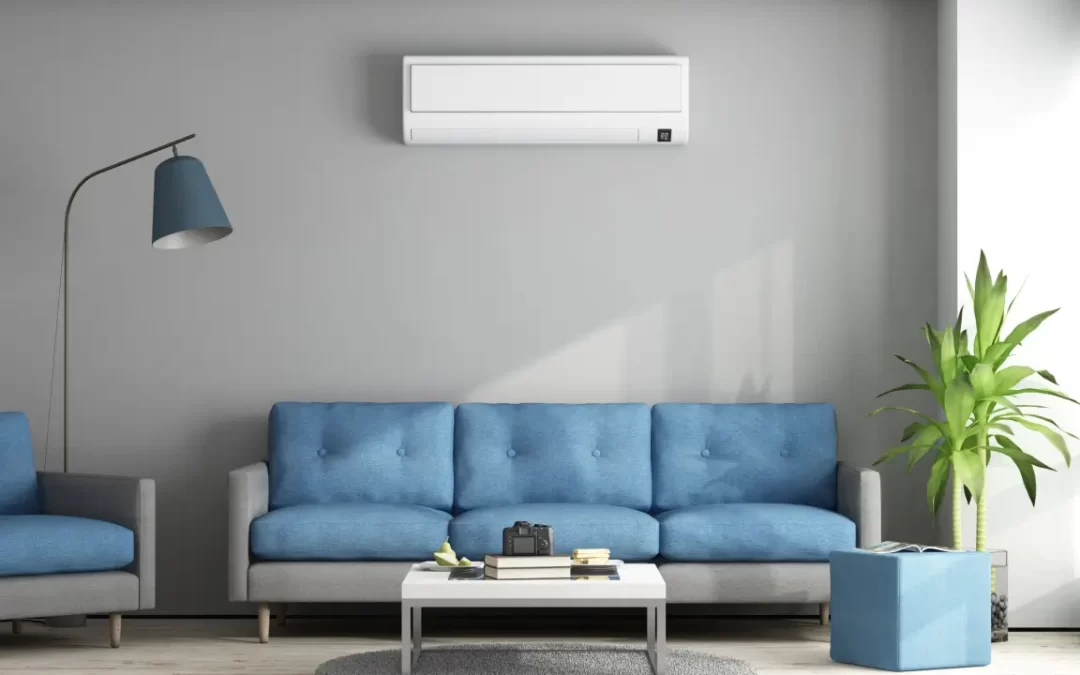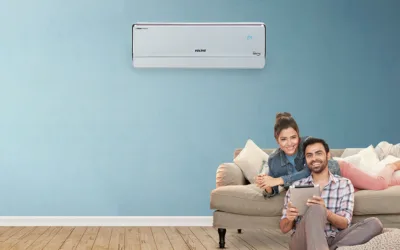Air conditioners do more than just cool the air in your home; they also play a crucial role in regulating indoor humidity levels. By removing excess moisture from the air, air conditioners help maintain a comfortable and healthy living environment. However, the impact of air conditioning on humidity can vary depending on several factors, including the type of system, its efficiency, and how it is used. In this article, we will delve into the relationship between air conditioning and humidity, exploring how air conditioners work to control moisture and offering tips on optimizing their performance for a balanced indoor climate.
Understanding Humidity and Air Conditioners
What is Humidity?
Humidity refers to the amount of water vapor present in the air. It is typically measured as relative humidity, which is the percentage of moisture in the air relative to the maximum amount the air can hold at a given temperature. High humidity levels can make a room feel warmer than it actually is, while low humidity can lead to dry skin and respiratory issues. Balancing humidity is crucial for comfort and health. Air conditioners help manage this balance by removing excess moisture from the air through the cooling process. When warm air passes over the air conditioner’s evaporator coil, the moisture condenses and is drained away, thereby reducing the humidity level in your home. Understanding this process is essential for optimizing your air conditioner’s performance and ensuring a comfortable living environment.
How Air Conditioners Work
Air conditioners function by drawing warm air from your home and passing it over evaporator coils filled with a refrigerant. As the air cools, its ability to hold moisture decreases, causing the excess water vapor to condense into liquid form. This condensed moisture is then collected and drained away, effectively lowering the indoor humidity level. The cooled and dehumidified air is then circulated back into your living space, creating a more comfortable environment. This process not only cools the air but also helps in maintaining a balanced humidity level, which is crucial for both comfort and health. Knowing how your air conditioner works can aid you in optimizing its use, ensuring that your home remains both cool and dry.
Types of Air Conditioners
There are various types of air conditioners, each with its own method of controlling humidity. Central air conditioning systems are the most common and are highly effective at both cooling and dehumidifying large spaces. Window units, which are installed in windows or walls, also provide significant dehumidification but are more suited for smaller areas. Portable air conditioners offer flexibility and can be moved from room to room, although their dehumidifying capability may be less efficient compared to other types. Ductless mini-split systems, which consist of an outdoor compressor and one or more indoor units, offer targeted cooling and humidity control for specific zones within a home. Each type of air conditioner has unique features and benefits, making it important to choose the one that best fits your home’s needs and your lifestyle. Understanding these differences can help you optimize both cooling and humidity levels effectively.
The Impact on Home Humidity
Dehumidification Process
The dehumidification process in air conditioners is a critical component for maintaining indoor comfort. As warm, humid air is drawn into the unit, it passes over cold evaporator coils. The temperature drop causes the moisture in the air to condense into water droplets, which are collected in a pan or drained away. This process effectively removes excess humidity from the air, making your home feel cooler and more comfortable. The dehumidified air is then circulated back into the room, ensuring a balanced indoor climate. Regular maintenance, such as cleaning the coils and ensuring proper drainage, is essential for the efficient operation of this dehumidification process. By understanding how this process works, you can better manage your air conditioner’s settings and maintenance to optimize indoor humidity levels, contributing to a healthier and more comfortable living environment.
Balancing Humidity Levels
Balancing humidity levels in your home is crucial for both comfort and health. While air conditioners play a significant role in dehumidifying your environment, it is essential to monitor and adjust settings to maintain optimal levels. Ideally, indoor humidity should be between 30% and 50%. Levels higher than this can foster mold growth and make the air feel warmer, while levels lower than this can cause dryness and respiratory discomfort. Using a hygrometer can help you keep track of humidity levels. Additionally, setting your air conditioner to the appropriate temperature and using fans to circulate air can aid in balancing humidity. In some cases, using a standalone dehumidifier may be necessary for areas with high moisture levels. By taking these steps, you can ensure a comfortable and healthy indoor environment, effectively managing both temperature and humidity.
Common Issues and Solutions
Common issues with air conditioners impacting home humidity include insufficient dehumidification, water leakage, and musty odors. These problems can stem from various sources such as dirty filters, clogged drain lines, or low refrigerant levels. To solve these issues, regular maintenance is key. Cleaning or replacing filters every few months ensures efficient airflow and moisture removal. Checking and unclogging drain lines prevents water buildup and leakage, which can otherwise lead to mold growth. Additionally, having a professional check the refrigerant levels and overall system performance can address any inefficiencies. If musty odors persist, it may be due to mold or mildew in the system, which can be cleaned with appropriate disinfectants. Addressing these common issues promptly not only improves your air conditioner’s efficiency but also ensures a balanced and healthy indoor humidity level, enhancing overall comfort.
Tips for Managing Humidity
Using Humidifiers and Dehumidifiers
While air conditioners can manage humidity levels to some extent, using standalone humidifiers and dehumidifiers can provide more precise control. Humidifiers add moisture to the air, which is especially useful during winter months when indoor air can become excessively dry due to heating systems. This can help alleviate dry skin, respiratory issues, and static electricity. On the other hand, dehumidifiers are effective in removing excess moisture from the air, particularly in humid climates or damp areas like basements. They help prevent mold growth, reduce musty odors, and improve overall air quality. By using these devices in conjunction with your air conditioner, you can maintain optimal indoor humidity levels year-round. Selecting the right size and type of unit for your space is crucial for effectiveness. Regular maintenance, such as cleaning filters and monitoring water levels, ensures these devices operate efficiently and contribute to a comfortable living environment.
Regular Maintenance Tips
Regular maintenance of your air conditioning system is essential for managing humidity levels effectively. Start by cleaning or replacing the air filters every one to three months to ensure proper airflow and efficient moisture removal. Check and clean the evaporator and condenser coils annually to prevent dirt buildup, which can hinder the dehumidification process. Inspect and unclog the drain lines to avoid water leakage and potential mold growth. Additionally, it’s important to check the refrigerant levels; low refrigerant can reduce the system’s ability to cool and dehumidify. Scheduling yearly professional maintenance can catch minor issues before they become major problems, ensuring your system runs efficiently. Keeping the area around your outdoor unit clear of debris also helps maintain optimal performance. By following these regular maintenance tips, you can ensure your air conditioner effectively manages humidity, providing a comfortable and healthy indoor environment.
Choosing the Right Air Conditioner
Selecting the right air conditioner is crucial for effectively managing humidity in your home. Start by considering the size of the unit. An air conditioner that is too small won’t adequately cool or dehumidify your space, while an oversized unit may cool too quickly without removing enough moisture. Look for units with built-in dehumidification features, which can offer better control over humidity levels. Energy efficiency is another important factor; energy-efficient models not only save on utility bills but also tend to have more effective moisture control. Central air conditioning systems are ideal for whole-home solutions, while window units and portable models work well for individual rooms. Ductless mini-split systems are versatile options for targeted cooling and humidity control in specific areas. By choosing the right type and size of air conditioner, you can ensure optimal performance, maintaining a comfortable and balanced indoor climate.











